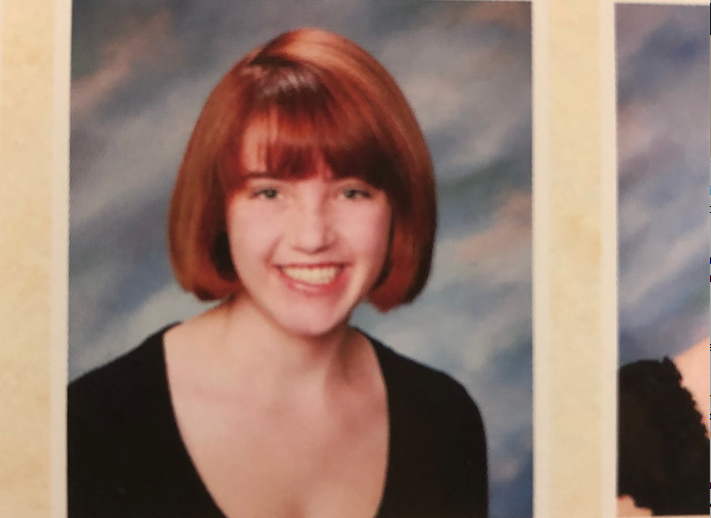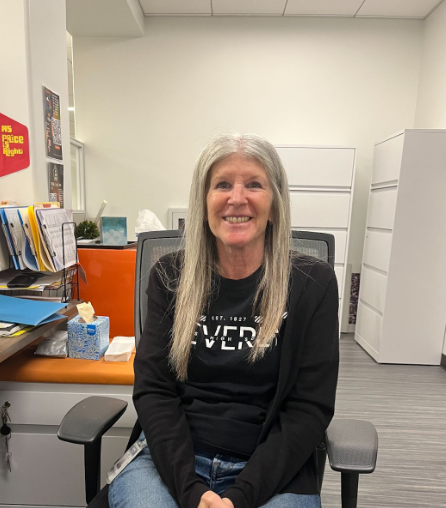Mikaela Rabizadeh social media editor
After traveling nationwide as an established journalist, reporting for the largest news circulation in the world and indulging in the great books of western philosophy, alumna Kate Havard returned to campus. While it was only nine years ago when she walked the halls as a Norman, Havard’s homecoming served to promote a rare opportunity for students to attend a two week summer intensive at Yale University.
As the associate director of the Maimonides Scholars Program, Havard looked to recruit intellectually curious rising seniors, who are interested in exploring Jewish thought and philosophy. If selected to join the program, students from across the nation earn the chance to learn from highly esteemed professors and participate in stimulating workshops.
“It’s an opportunity for high school students to come and learn in really engaging, college level seminars on some of the most profound political and philosophic questions: what it means to be American, what it means to be Jewish, and how those two things work together,” Havard said.
During the summer after her sophomore year of high school, Havard attended a summer program herself, the Hertog Political Studies Program. Little did she know at the time that this program would become a trailblazer for her professional career, opening doors to the journalistic field.
“It was a really great experience. That program ended up growing into a network of programs, that was not just political stuff but Jewish philosophy, and I sort of stayed in this network,” she said. “I met my first boss, who was a guest speaker at one of these programs, and the next year I got an internship with him at his magazine in Washington, D.C.”
From there, Havard climbed her way up the ladder, from co-writing advice columns with her mother to eventually working under prestigious news publications including the Washington Post and the Wall Street Journal. While in D.C., she wrote for the Weekly Standard doing counter-terrorism research, and investigating hard-hitting exclusives in politics and public policy. Fresh out of college, she traveled across the nation covering the Romney-Obama election in 2012.
“I basically just started reporting stories by doing what I saw reporters doing in movies, putting tape recorders in people’s faces, and there was a lot of trial and error learning,” Havard said. “Even though I was very young and new, they sent me all over the country to cover House races and the Democratic Convention and the Republican Convention. It was all very exciting.”
Her job with the Weekly Standard scored her a position at the Washington Post doing local statehouse reporting. As opposed to her previous experiences as a journalist, Havard was able to get up close and personal with candidates by doing long-term reporting.
“It was old school reporting like you would see in a 1940s movie. You were in the press bureau in the statehouse basement. You were in the gallery every day. You were chasing people down in the parking lot and staking out,” she said.
Despite the thrills that come with the bustling life of a journalist, Havard always found herself returning to philosophy and the great books.
“I missed writing about philosophy, about education; I missed writing about books and theatre and thinking about these questions, and I discovered that I needed a little bit of a break from politics and public policy. I wanted to go back into the life of the mind, and teach other people about it,” she said. “They were starting this new Maimonides program and they asked me if I’d like to run it, I said that I would be honored.”
Returning to her former high school, Havard looks back on her educational career and the teachers that paved her love for literature and philosophy. With AP Psychology teacher Roel Hinojosa and English teacher Krisha Deaver, she got her first taste of Shakespeare, Plato and Aristotle, a few of the great minds she would eventually be studying in her time at St. John’s College.
“I wanted to be a writer and I didn’t think of journalism as being writerly. I thought: it’s just saying what happened, how is that writing? And then, I realized there is an art to it,” Havard said. “As I was reading, though, a lot of modern fiction, it seemed to be often just about writers writing about writing, and it led me to think if I want to be a great writer, I need to have something to say. I need to have an idea worth writing about or a story worth telling.”
Categories:
Alumna returns after ‘making it’ as journalist
November 30, 2017
0
Donate to Highlights
$125
$1000
Contributed
Our Goal
Your donation will support the student journalists of Beverly Hills High School. Your contribution will allow us to purchase equipment and cover our annual website hosting costs.
More to Discover





























